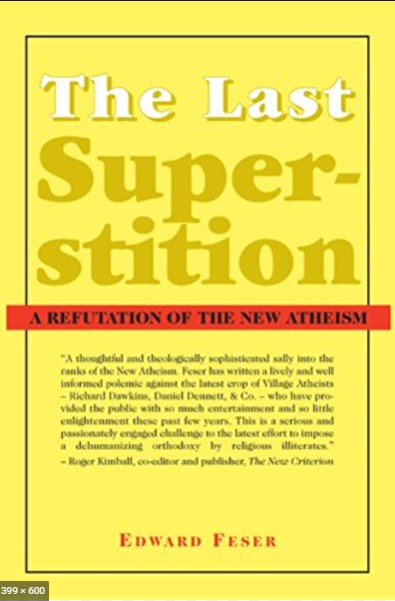

For example, when you perceive or think about triangles, the very same essence or nature – triangularity – that exists in actual triangles also exist in your mind. Recall that in the Aristotelian conception of the soul, when the intellect knows something outside it, one and the same form exists both in the intellect and the thing known. Ironically, the Mechanical Philosophy (in this and other ways, as we shall see) made a direct appeal to God more necessary than it had been in the Scholastic view (which does not appeal to God to safeguard the possibility of knowledge, committed as it is to an Aristotelian understanding of causation on which the connection between the mind and the world is not especially problematic).Īnd in speaking of “he problem of skepticism,” Feser he asks us (pp.

That is, a paragraph or two after having told us (p. When we come to human beings we have what is called a “rational soul,” which includes both the powers of the nutritive and sensory souls and also the distinctively human powers of intellect and will: that is, the power to grasp abstract concepts – namely, the forms or essences of things – and to reason on the basis of them, and freely to choose between different possible courses of action on the basis of what the intellect knows.Īnd another passage offers an even more explicit statement of the thesis. 121-122) in which Feser, comparing the human soul with the “nutritive soul” and the “sensory soul,” identifies “abstract concepts” with “the forms or essences of things.”

But the Aristotelian theory of knowledge includes a further and related thesis which, I hold, must be rejected, the thesis that that concept by which we intellectually grasp, and so know what a human being qua human being is, is identical with the form, nature, or essence which the human being has and by which it is a human being.

The Aristotelian theory of universals, of course, is one in which the distinct members of a set of similar existents, say that of human beings, are what they are similarly by virtue of their each possessing some one and identically the same human form, nature, or essence by which they are all human. This theory conjoins an anti-realism, rejecting all universal forms, natures, or essences with a neo-Aristotelianism, affirming the existence of individual forms, natures, or essences.ġ. In that post I took as my point of departure Edward Feser’s review, in The Last Superstition,* of Aristotelian realism in the theory of universals and I offered as an alternative to that view a neo-Aristotelian anti-realism in the theory of universals. In “ Aristotelian Realism in the Theory of Universals of Feser’s The Last Superstition,” my post of February 17, 2015, I continued my discussion of the problem of universals.


 0 kommentar(er)
0 kommentar(er)
